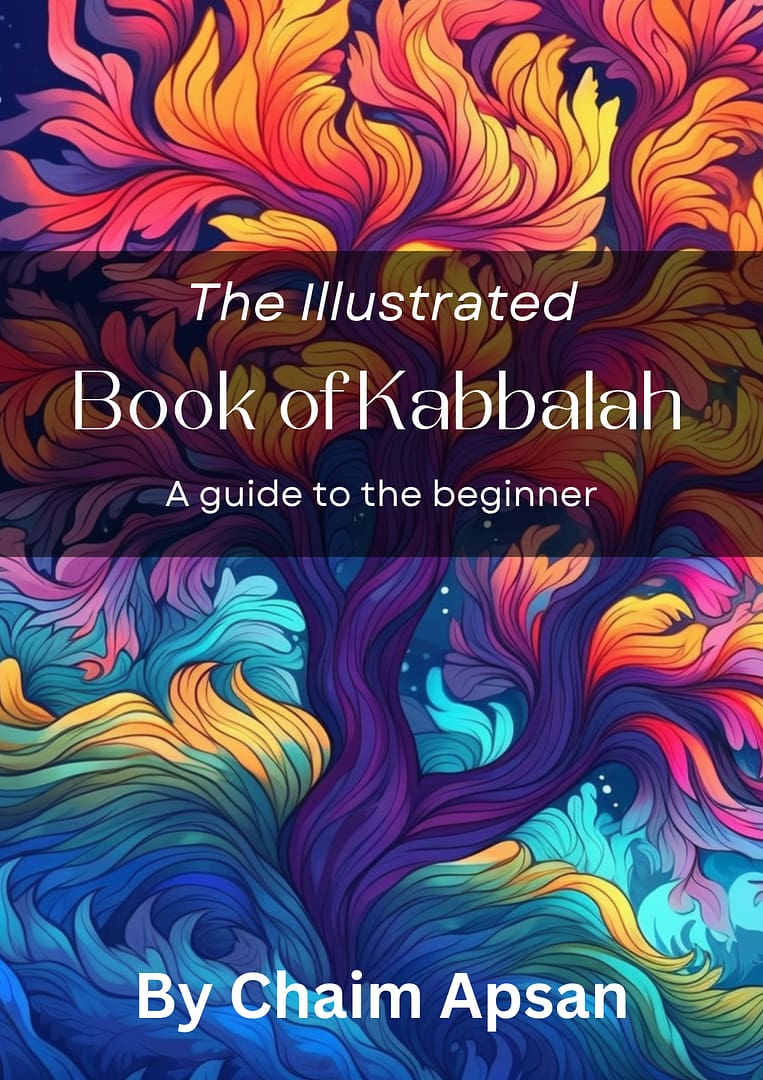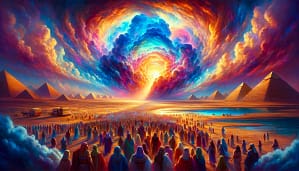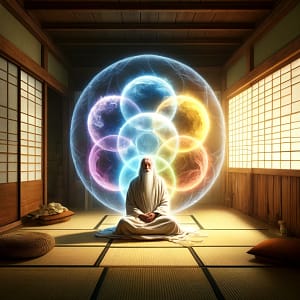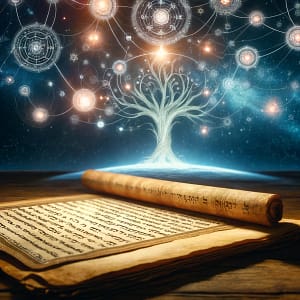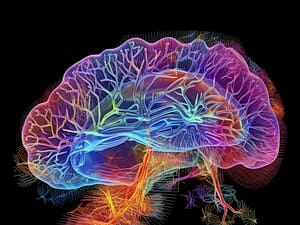“Hashem is good”, everyone says. “But how do you explain X, Y, Z and all other letters of the alphabet?”, asks the skeptic.
I’m sure that, with a little soul searching and questioning, every single person eventually stumbles upon the million-dollar question:
If God is good, why is there pain in the world? One could seriously argue something went wrong along in the history of mankind, like God is not interested in Creation anymore.
Obviously that’s wrong, but it doesn’t take a genius to realize that the little blue planet we live in is quite often a nasty place. Sure there’s a lot of good and most of us reading this article have very comfortable lives.
So people who have it easy can more easily state, without any problems that God is good indeed. Yet, elsewhere, and especially in poorer regions, criminals prosper, killers abound and the innocent seem to suffer the most.
What’s the deal with that?
If we are to discover more about why Hashem is good, we can’t just stay with the basics.
In this article, we explore a little more about these points:
- Free will
- True Emunah
- The purpose of pain
- One of the most famous Jewish answers
The question of questions
Even though this is an immensely complex matter to answer in a single article, make no mistake: our initial question is a very valid one and deserves a proper response. We need however to come with the assumption that God is good, and only then we are able to question it.
The first thing to know is that we can’t fathom even a droplet of all the calculations that run on God’s divine system of justice. So many variables are taken into consideration before anything happens that knowing why anything happens with certainty could overload our little minds. That’s already to be expected, but even so we can still dive in pretty deep waters.
In order to answer the question, it’s important to know a little how the system of creation is structured and how it fundamentally rests on Emunah(the true nature of faith will be explored in a different post), because such is the way the Creator wanted it to be. Eventually, there will be a limit to how deep we can go in this matter and some people might find the answers still unsatisfying, which is to be expected.
However, limited as we are, if we were able to rise further up than we can, we would reach a realm of tautologies and nonsensical concepts. Nothing would make sense at that rarefied level, simply because it transcends our intellectual capacity. This is what happened in the most famous story of Elisha ben Avuya (called Acher), when he saw the Malach Matat sitting.
What will be presented up ahead is a brief outline of some very deep insights I found in Jewish literature, which might bring some comfort to the troubled seeker.
How free will and true faith operate
One of the most basic ideas to keep in mind is:
No one can see or hear God nowadays, and that’s what makes free will possible.

God is constantly supervising all aspects of creation and “adjusting the settings” according to our behavior. However, if we could see Him, we wouldn’t dare to sin at all because a person we would be completely nullified Him with no free will. This is brought in many works like Likutey Moharan and Tzava’at HaRivash.
The ultimate purpose of our world is for us to have free will and “work” on refining ourselves. This must happen without us being coerced by divine revelation. Nonetheless, if we could see behind all the veils of reality, we’d know without a doubt that God is good. Our doubts stem from the fact that he is, so to speak, hidden within creation. Thanks to that, the ultimate good (i.e.: uncoerced good) can genuinely manifest in our world by our own efforts.
However, this also allows for the existence of evil and suffering.
It’s also important to know that the system of Creation is structured in such a way that no one can absolutely prove the existence of God. This is one of the main arguments used by atheists, and it would make perfect sense were it not for the fact that there can be no absolute knowledge, ever.
To explain: there’s no way to prove anything with absolute certainty no matter how mundane it is. This has already been the subject of much scientific research and, in fact, a person cannot even prove or know he’s not awake at this exact same time. Everything depends on context and point of reference, and exists only in a relational sense.
So how could the finite, relative and subjective reach the infinite, absolute and transcendent?
And this is where faith comes in. Someone once said:
“Faith is not a deduction but an intuition, not a form of knowledge, of being convinced without proof, but the attitude of mind toward ideas whose scope is wider than its own capacity to grasp.”
This quote summarizes the proper stance towards Emunah.
We see then that, for certain matters, it’s necessary to make the mind receptive to an idea. This is the “leap” that needs to be done in order to grasp higher matters like Kabbalah. It’s present in respect to everything we believe in, from the most mundane act of washing your hands before eating to choosing a doctor for surgery to traveling by plane. Without it, nothing makes sense.
Emunah is always present in what we do. Yet, it is more than just believing that the Creator exists and that everything is for the better. It would encompass an entire volume to explain but simply put it makes a person stand on top of Creation, transcending nature and not be troubled by anything in life whatsoever. Believing in these things is only the first initial step towards self-mastery. The endpoint is living one’s entire life blessed just like that.
The essence of pain
People naturally wonder why they suffer all the time. There’s always something to bother us.
We don’t have any problems justifying why things should go our way (because we obviously deserve everything good and more), but suffering is almost invariably unacceptable. So, if God is good, why do we suffer?
First, it’s important to know there’s a distinction between pain and suffering. The two are not the same, but are often associated with each other. Yet, pain and evil are often correlated because, in a world without evil, as will be in the future, there can be no pain.
So what is pain all about?
There’s a very famous proverb that says about this world: “Pain is inevitable, but suffering is optional”. I thought this was some Buddhism expression, but found out nobody really knows where it comes from. Whatever the case it expresses nicely the perspective one should take in life.
The truth is any form of pain is a trial to the next spiritual level.
Pain is a sensation that weighs us down in physicality. It’s been designed to do just that. People who are beset by pain, whether physical or psychological experience heaviness, numbing, some degree of depression and often lose some spiritual perception.
It’s also, well… painful.
Often pain can feel like an endless pit, a dark cave or a dreadful storm. Yet, for all the horrible things that a person might be experiencing, a person can elevate them and become better. In transcending pain, one is able to reignite his soul (i.e. higher level of consciousness), and when that happens, then he/she will experience true, sublime wonders.
In Kabbalistic parlance, bring new Mochin (divine consciousness)l
There’s an inner feeling of victory and meaning that cannot be acquired any other way. Yet, like all other spiritual accomplishments, it can only be felt and is highly personal.
Though the pain may linger, the challenges become a much greater light than we’d perceive if we hadn’t received pain the first place. And, by definition, God never gives a challenge that’s bigger than our capacity to handle it.
The main point to take is: pain has a very specific spiritual purpose. Knowing this simple truth can alleviate a lot of it and sensitive ourselves to the fact that God is good.

A real life example
As an example, consider someone who is diagnosed with a horrible disease and hospitalized.
In that sorrowful state, many family members and friends come to visit the patient. Though they might not have had much contact throughout life, the patient is extremely happy to see them and they are happy to see him. In fact, even quarrels held by family and friends among themselves disappear. This can happen whether the patient lives or dies.
Sadly though, many forget that we are here in order to learn and refine ourselves. Our generation is lost in many regards, and often, any little thing is a cause for great misery. However, in this world, lessons are given many times over, no matter how long it takes for them to be learned. Pain serves to trigger a particular area in which a person has a flaw in order to correct it.
As one might already expect, this is ultimately for our own good.
God is good, a Jewish answer
Our Sages of blessed memory (OBM from now on) already explored this question.
One of the most famous answers of why God is good comes from Massechet Makkot. It’s brought there that good people are punished for the little evil they make in this world in order to purify them of their minor sins so that they will receive their full, infinite and sublime reward in the next one. Evil people, on the other hand, are rewarded here, with finite and low reward in this world so they are utterly punished in the next one.
Make no mistake: just because a person is evil, it doesn’t mean he has no good. There can be no such a thing in the world that’s entirely evil. God’s justice goes down to a strand of hair, and it doesn’t matter what people think others should receive or not. Justice is justice, whether to tzaddikim or reshaim.
An example from Jewish tradition
There’s a story the sages tell (I believe in a Midrash), that once a farmer was left to take care of a farm by a wise king who had to go off for some business. In his stead, the king left a supervisor to watch over the farmer’s work.
But the supervisor was not as kind as the king and harassed the poor farmer. Day in and day out, the supervisor would beat the farmer, whip him, curse him, and do everything to prevent him from performing his job.
When the wise king came back, he readily saw what had happened and ordered the supervisor to be put to jail. As for the farmer, he took pity on him and said:
“For every bruise or lash you received while I was away, I will give you a gold coin.”
The king upheld his word and suddenly, the farmer was rich beyond his dreams. He could retire right away and have money for the next few generations. However, when the farmer went back home, his wife noticed her husband wasn’t as ecstatic as her and asked him:
“What’s the matter? You have been suffering all this time, and now that it’s ended and we have more than enough money, you are still not happy?!”
To which the farmer replied:
“Yes, I’ve been suffering and it has been terrible. I never imagined my torment would end but, the truth is… I could’ve withstood 100 more punches!”
This story illustrates a little what happens in this world. When a person dies, he/she sees that there was never really any pain to begin with because in the World to Come (the next one), there’s only light. Abundant, delightful, all encompassing light, which drowns all the pain a person might have felt in this little world. There’s proof for this, derived from logic and reason, but we’ll have to limit our discussion for now.
The bottom line is: Any pain a person might have had here, is utterly eclipsed by what he experiences afterward.
As the Rabbi Moshe Chaim Luzzatto puts it in his introduction to Mesilat Yesharim: who has no pain? For whom has this life given an overabundance of blessing and peace free of charge?
Life is painful. Still, having our minds on the next world and our feet on this one makes life much easier. Sure, there’s a little of the power of suggestion at play here, but faith goes much deeper than a mere psychological gimmick. God is good, no matter what.
If it was just crazy folk delusion (i.e. false), it would one day vanish. Yet, this is one of the main Jewish ideas that make life bearable and the truly righteous shine, especially for us Jews. They live their lives in satisfaction and without a worry in the world, thanks to true Emunah. This is the end goal.
A final question
Back to our first point, if God is Good, could He have created the world without pain in our lives?
This is not such a trivial question as it seems, and most of the people should be bothered by it at one point in their lives. If God is all-powerful, why create a world with pain in the first place just so we can have reward in the next?
I’ve struggled with it for a while and one of the most famous answers I found is as follows:
“True, God could’ve created the world without evil, but then we’d not deserve the ultimate good. If we wouldn’t need any effort to have the ultimate good, then we’d be eternally ashamed for receiving it without merits. That would make the ultimate good not so fulfilling.”
Personally, I’d say that although it helps understand a little better there is pain, it’s still a very unsatisfying answer.
While “shame” can make perfect sense up to a certain point, it still doesn’t answer another deeper question:
Then why not create the world without shame altogether?!
After all, God can do everything he wants, even give us infinite, eternal delight without us having to lift a finger.
Once again, I found a most fascinating answer (not mine and I don’t remember the author) which makes more sense and I share with you all here:
“If God would’ve created the world without the need of pain and evil, and without shame for receiving free reward, then we would, by definition, be prevented from being considered ‘creators’ ourselves. And that is the ultimate pleasure.”
Concluding remarks
Putting everything together, we see that pain and effort can bring the best out of us. God is good no matter what and all that we perceive as bad is done so people’s characters can shine in difficult situations. It can polish our crude exterior and turn our attention inside (if you have an eye for it).
Fundamentally, pain and effort stimulate a person to go beyond what he thought was possible. A person’s Yetzer HaRah is also subdued, as he has little interest in what it has to offer. Pain makes the soul truly shine in the darkest hour.
Therefore, in transcending pain, and choosing good, a person brings peace to the world and creates heaven from within. That’s no small feat. That makes it all worth it. That makes a person truly godly, resembling the Creator.
Sure evil is there. Sure, life is difficult. despite all the pain and suffering, God is good and it all depends on our ability to peel through the outer layers of reality.
And this is one of the fundamental ideas in Jewish thought.

